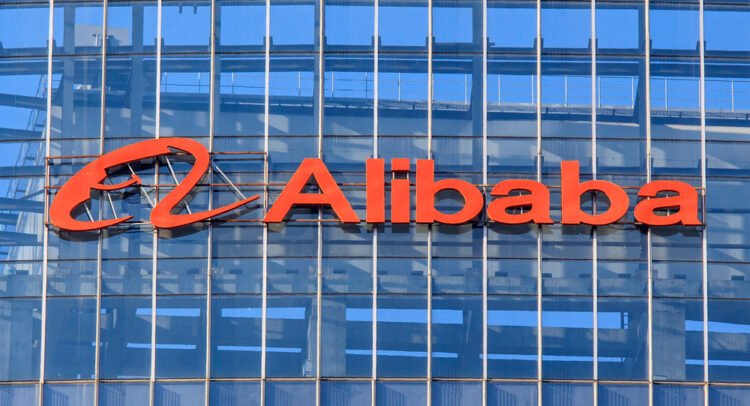Among major Hong Kong stocks, Alibaba (HK:9988) shares have declined 27.5% over the past year. Alibaba investors await a turnaround as the Chinese e-commerce and tech giant continues to struggle due to macro pressures, intense competition, regulatory headwinds, and growing U.S.-China tensions. Meanwhile, most analysts remain optimistic about the long-term prospects of Alibaba but are cautious about the near-term pressures.
Alibaba’s Recent Performance
2023 was a tough year for Alibaba, as it grappled with weak consumer spending amid macro uncertainties. Moreover, the company has been losing ground to discounting platforms like Pinduoduo, which is owned by PDD Holdings (NASDAQ:PDD).
In the fiscal third quarter (ended December 31, 2023), Alibaba’s revenue grew 5% to RMB260.3 billion but missed expectations. Further, the company’s net income plunged 77% to RMB10.7 billion, mainly due to mark-to-market changes related to equity investments and impairments associated with its supermarket chain Sun Art and video streaming service Youku.
Amid rising competition, revenue from Taobao and Tmall, Alibaba’s China e-commerce platforms, increased by just 2%, while revenue from the cloud computing business grew by 3%. CEO Eddie Wu has made it clear that the company’s top priority will be to reaccelerate the growth of these core businesses.
Efforts to Navigate a Tough Backdrop
Alibaba reshuffled senior positions and announced a major restructuring of its business last year, with plans to split the organization into six units. The company also said that it would explore public listings for these units. However, in November 2023, Alibaba stalled its IPO plans for its cloud unit due to uncertainties related to the U.S. chip export restrictions.
Additionally, earlier this week, the company said that it scrapped IPO plans for Cainiao, its logistics unit, due to challenging IPO market conditions in Hong Kong. Instead, it now intends to buy the remaining 36% stake in Cainiao that it doesn’t already own. Management thinks that this is an appropriate time to double down on logistics business, given the intense rivalry in the e-commerce space.
Overall, Alibaba is making investments and taking initiatives to boost its core businesses, strengthen its position, and regain its market share. Moreover, to capitalize on the pullback in its share price, the company announced an additional $25 billion authorization under its share repurchase plan, bringing the total to $35 billion.
Alibaba is also investing aggressively in generative artificial intelligence to capture the massive opportunities in this rapidly growing market.
Is Alibaba a Buy, Sell, or Hold?
Following the company’s announcement about calling off the Cainiao IPO, JPMorgan analyst Alex Yao stated that pursuing the IPO now might not help achieve the initial goal of unlocking shareholder value.
Yao thinks that Alibaba shares could be under pressure over the near term due to Cainiao’s growing infrastructure investment. That said, considering the rapid growth of the cross-border e-commerce business, the analyst believes that such investment would yield results in the long run. Yao has a Buy rating on Alibaba stock.
With four Buys and two Holds, Alibaba stock has a Moderate Buy consensus rating. The average 9988 share price target of HK$100.87 implies about 44% upside potential from current levels.

Conclusion
While Alibaba is facing multiple near-term pressures, including increasing competition in the e-commerce space in China, several analysts are bullish about the company’s long-term growth potential and its turnaround initiatives.





